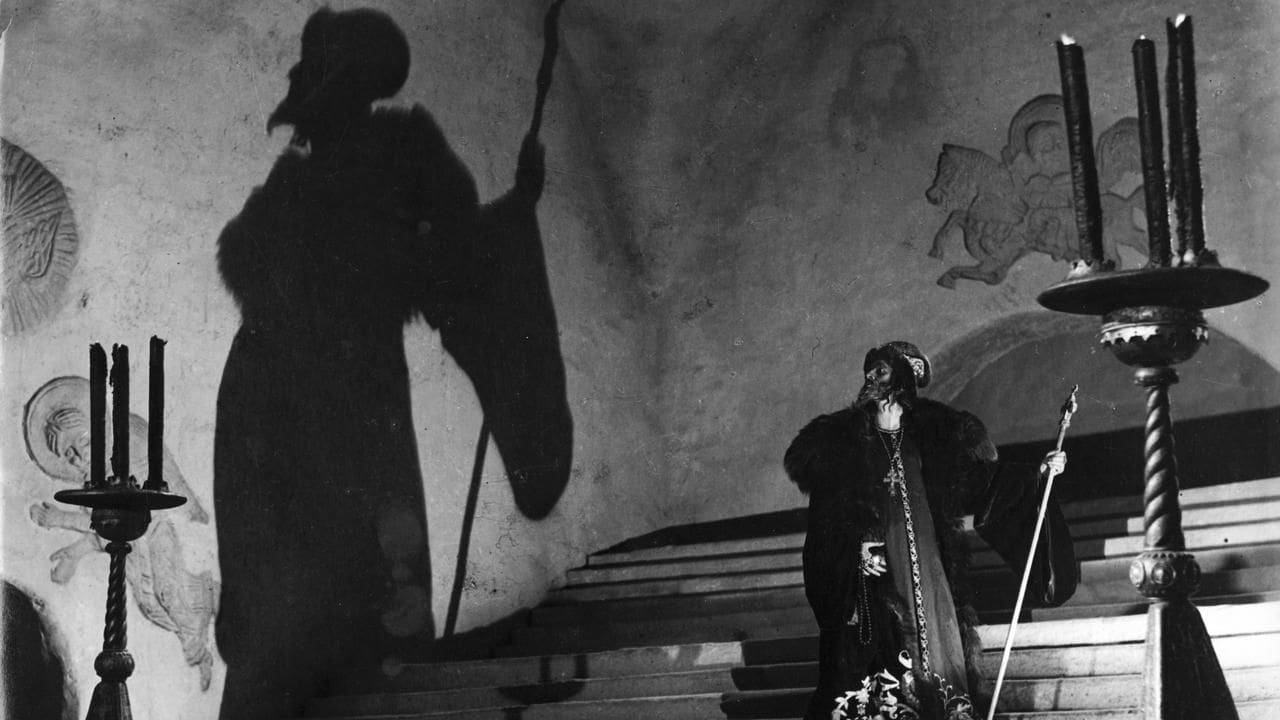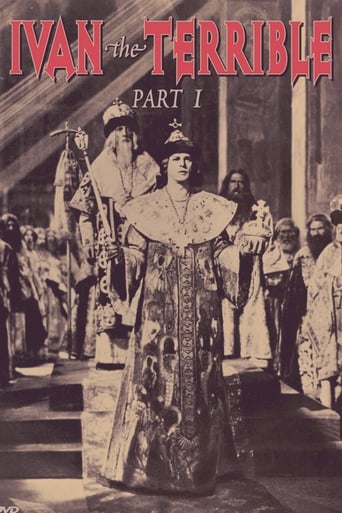felixoteiza
While still a remarkable production, ITT-1 doesn't nearly reach the peaks of excellence of its namesake and sequel ITT-2. Technically is still great, a visual masterpiece, but there are several factors—natural or logical, fruit of the circumstances, etc—preventing it from becoming the classic the later is. For one thing, its episodic nature, which robs the film of an adequate building up of tensions, an emotional crescendo, culminating in a spectacular denouement as we see in the sequel, in those unforgettable dance & Church scenes. That's the problem with episodic plots, that much of the tension generated and accumulated in each episode, or that lingering from previous ones, dissolves during it, even more when closure comes with that ending, which leaves for the next episode the task of starting building tensions and focusing once again. We may compare both ITT-1 and 2, with two race cars starting both from the same point and then car 2 accelerating until reaching its maximum speed while car 1 goes stopping every hundred feet. That's what happens here with ITT-1 and its sequel. That's why the sequel is more exciting to watch, at it's far more focused, more tightly weaved as a story.The best ex. of what I'm saying about ITT-1 is the war on Kazan. It happens, then we never hear of it again, not even as a memory, its only contribution to the main plot line having been that establishes Ivan as a smart, strong and powerful conqueror, and that also informs us on the origins on the great trust he'll put later on the three men on which he would base his Oprishkina, the Basmanovs and Malyuta. That's very informative, of course, something we had to know, but it shows also the price ITT-1 pays for having come out first; for making possible for the sequel to be such an epic, as it's the one in charge of preparing the terrain for it, developing those themes and elements that will come to heed in the second part, the conflicts that will come clashing to the open. Different, unrelated, elements have to be gradually brought together to complete the required palette of characters and events. That's the task of ITT-1 and that's what makes its writing so dispersed and its action so unfocused.But apart from that there are also some flaws in the editing, the directing, that at times practically take us out of what should be the mood of the moment. For ex., the brush of Ivan with death comes immediately after his victory in Kazan; there's absolutely no transition there, no triumphal return to his people, like we see in Alexander Nevsky. Ivan wins the battle and next he's dying in bed (BTW, it's just me or that was just a trick to weasel out those he shouldn't trust? Come on, one moment he's dying and the next he's running around making speeches). Also the whole sequence is way too long, with and excruciatingly slow pace at times, which works against the pacing of the whole movie, as it totally clashes with that of the previous, the assault of Kazan. So, transitions are not always smooth here, many are even bumpy, abrupt, as if entire scenes had been edited out. That happens for ex. with Anastasia's death: she drinks the poisoned liquid and next we are already in her funeral.Despite all its faults, ITT-1 still makes for one movie worth watching, especially if you have already seen the sequel. Technically is still impeccable, the same attention to detail by the director; the same allegoric surroundings we see in ITT-2—after all both unfold in the same environment, the Czar's palace, the church, etc. Also present here are the trademark close ups on the purposely lighted faces of the actors, the focus on their expressionist eye movements and the middle shots exposing them against a background of deliberately chosen imagery—-as the fresco of a cadaverous face, a human skull, on a wall during funeral; the ever present combinations of light and shadows to create the expected mood. Also, contrary to other reviewers, I love these pompous, grandiloquent characters, so self-conscious all, who when talking seem to be pronouncing every one of their words for the Ages; each one seeming to believe they have some transcendental truth to communicate, some divine mission to accomplish, as they keep mentioning God as if certain that God was on their side. For someone more or less familiar with the works of Dostoevsky, Tolstoy, nothing less than what we see here is what we expect from a Russian epic, in the acting department. The only one I didn't quite like it is Nazvanov. He overacts most of his scenes, so much so at time he gave me the impression of watching a mime, a ballet dancer, rather than an actor.In all, technically as great as the sequel, and so the acting, but the pacing, the editing, the score, suffer somewhat, not the least because of official State meddling--Eisenstein wanted to begin the movie with the scenes of the young Ivan, but Stalin considered too depressing. 7.5/10.
Boba_Fett1138
Even though this is still a fine movie, that is skillfully directed, the movie also suffers from Sergei M. Eisenstein 's directing style.Sergei M. Eisenstein began his directing career back in 1923. He also directed his best and most classic and memorable movies during that decade. I'm talking about real artistic and influential classics such as "Bronenosets Potyomkin" and "Oktyabr". Later during his career he however changed very little in his style and approach of directing. What worked out so extremely well in the '20's and till some extend the '30's however don't work as well for an '40's movie. The movie is directed like all of his silent movies, while of course this movie is fully spoken and features lots of dialog. Still Eisenstein tries to tell the story with the actor's very expressed faces and looks. The movie has lots of long staring, intense looks and big eyes in it, with exaggerated motions, like you will only normally see in an early '20's movie. This movie would had been way better had it been made in the '20's, without sound- or if Eisenstein had picked a different approach, more suiting of its time.It tells the story also slow and therefore the movie is not at all time that interesting to watch. The movie could had told way more and way faster. That way Eisenstein also wouldn't have had to bother to make two more sequels to this movie, which however got banned or just completely halted by Stalin because the movies were being too critical for his taste about the character of the 'great' Czar Ivan IV and the current 'modern' Soviet reign.Nevetheless it by no means is a horrible movie. It's just being overrated, probably because it got directed by the great Eisenstein, who is one of the most influential early movie directors from the 20th century.The movie is still good to watch and it does tell a story filled with themes of all time concerning power and betrayal. Artistically it also is a fine looking one, even though the approach, look and feeling of the movie was already terribly outdated for normal 1944 standards.Good movie but not really right and suiting for its time. Eisenstein's earlier movies remain his better ones.7/10http://bobafett1138.blogspot.com/
MartinHafer
This is a rotten movie that is masquerading as "art". While many elitist art critics have declared that it is a masterpiece, I doubt if the common guy on the street would sit and watch this bile for more than a few minutes before they turned it off and put on something,...ANYTHING else! While this movie also isn't as bad as Harry Medved thought by naming it one of the 50 worst movies ever, I do think he is much closer to the truth! Never in all my life have I seen a movie that is this silly and pretentious,...except for a few of Jean-Luc Godard's films. Instead of DOING things, the characters (especially at the awful beginning of the film) make googly-eyed expressions at the camera and stare intensely as in a trance. The worst of these is the guy who plays Ivan. It's as if he thought the movie was entitled "Ivan the Somnambulist".Later in the film, when it appears something exciting is about to happen when Ivan's army lays siege of his enemies, the film builds and builds and builds and then the scene abruptly changes!!!! It's as if the message "scene missing here" should be flashed across the screen! The movie is actually VERY interesting from a historical perspective. Stalin ordered director Eisenstein to make this monstrosity as a thinly veiled message that for the nation to be strong, they must have a dictatorial leader who will kill the evil schemers. In other words, Stalin as a dictator MUST for the good of Russia commit terrible atrocities and kill his millions of enemies! So, like Ivan, Stalin LOVES his people and LOVES Russia--that's why he murders so many of them! Also, interesting is how in the midst of an all-out war to save the nation from the Nazis, the country could pour so many of its resources into making such a monumental movie.The bottom line is that this is pure propaganda and pure "artsy-fartsy" trash--redeemed from a score of 1 just because it had a few impressive battle scenes and the soundtrack was very nice. Avoid it unless you, like me, are a masochist who tries to see bad films from time to time.

